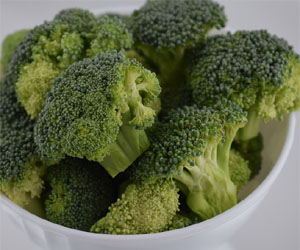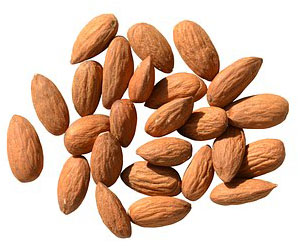


The Crucial Connection Between Diet And Lifestyle

In today's fast-paced world, where schedules are busier than ever and stress levels often soar, it's easy to overlook the profound impact that our daily choices make on our overall well-being. Diet and lifestyle are two critical pillars of a healthy, happy life. Their symbiotic relationship cannot be understated, as each influences the other in profound ways.
Diet: Fuel For Life
The saying "You are what you eat" is more than just a cliche; it's a fundamental truth. A balanced and nutritious diet provides our bodies with the essential nutrients, vitamins, and minerals required for optimal functioning. Every bite you take plays a role in shaping your health and longevity. A diet rich in fruits, vegetables, whole grains, lean proteins, and healthy fats not only provides the energy needed to fuel our daily activities but also supports our immune system, heart health, and mental well-being.
Conversely, a diet high in processed foods, excessive sugars, and unhealthy fats can lead to chronic conditions such as obesity, diabetes, and heart disease. It can also contribute to mood swings and fatigue, affecting our daily productivity and overall quality of life.
Lifestyle: The Canvas Of Well-Being
Your lifestyle encompasses the daily choices you make - how you spend your time, your activity level, sleep patterns, and stress management. It's the canvas upon which your health is painted. Regular exercise, adequate sleep, and stress reduction techniques are vital components of a healthy lifestyle. Exercise not only helps maintain a healthy weight but also boosts mood, enhances cardiovascular health, and increases longevity. Sleep, on the other hand, is when your body repairs and rejuvenates itself. A lack of quality sleep can lead to a weakened immune system, cognitive impairments, and an increased risk of chronic diseases.
Furthermore, the ability to manage stress effectively is a cornerstone of a healthy lifestyle. Chronic stress can lead to a variety of health issues, including anxiety, depression, and digestive problems. Implementing stress-reduction techniques such as mindfulness, meditation, or engaging in hobbies you enjoy can make a significant difference in your overall well-being.
The Interplay: Diet And Lifestyle
What makes the connection between diet and lifestyle so powerful is the way they complement each other. A healthy diet provides the necessary nutrients to fuel your lifestyle, while a healthy lifestyle supports your body's ability to absorb and utilize those nutrients. For instance, a person with a well-balanced diet is more likely to have the energy and motivation to engage in regular exercise, thereby reinforcing their healthy lifestyle.
In contrast, someone who fuels their body with unhealthy foods may find it more challenging to engage in physical activity and is at a higher risk of experiencing the negative effects of a sedentary lifestyle. Additionally, a stressful lifestyle may lead to poor dietary choices as people often turn to comfort foods high in sugars and unhealthy fats to cope with stress.
A harmonious relationship between diet and lifestyle is the cornerstone of a healthy and fulfilling life. Your choices in both these domains have a profound impact on your overall health, longevity, and happiness. By prioritizing a balanced diet and making conscious lifestyle choices, you can nurture your body and mind, ensuring a healthier, brighter future. Remember, it's never too late to embrace positive changes in your life and set yourself on a path toward well-being and vitality.




Nurturing The Soul
 The Essence Of Emotional Well-Being
The Essence Of Emotional Well-Being
Emotional well-being encompasses the ability to understand, express, and manage our emotions effectively. It's about finding a balance that allows us to navigate life's challenges with resilience, experiencing joy, and finding solace in moments of sorrow. Essential oils, through their natural aromatic compounds, can become powerful allies in this emotional journey.
Aromatherapy's Emotional Arsenal
Aromatherapy, the practice of using essential oils for therapeutic purposes, recognizes the intimate connection between our sense of smell and the limbic system, which governs our emotions.
Nourishing Your Body And Mind
 Avocado: Creamy and rich in monounsaturated fats, avocados are not only a delightful addition to your meals but also an excellent source of stress-fighting nutrients. They contain B vitamins and potassium, which help lower blood pressure and reduce stress.
Avocado: Creamy and rich in monounsaturated fats, avocados are not only a delightful addition to your meals but also an excellent source of stress-fighting nutrients. They contain B vitamins and potassium, which help lower blood pressure and reduce stress.
Berries: Blueberries, strawberries, and other berries are chock-full of antioxidants that combat oxidative stress. These antioxidants can help protect your body's cells from the damage caused by chronic stress.
Dark Chocolate: Dark chocolate in moderation can be a comforting treat and is known to trigger the release of endorphins, the body's natural stress relievers. It also contains flavonoids, which have been linked to lower stress levels.
Fatty Fish: Salmon, mackerel, and trout are high in omega-3 fatty acids, which have been shown to reduce stress and anxiety. These healthy fats are essential for brain health and mood regulation.
Leafy Greens: Greens like spinach and kale are rich in magnesium, a mineral that can help regulate cortisol, a hormone associated with stress. Consuming more magnesium can have a calming effect on the body.
Nuts: Almonds, walnuts, and pistachios are packed with nutrients, including B vitamins and healthy fats, which are known to reduce stress and support overall mental well-being.
Turmeric: The active compound in turmeric, curcumin, has anti-inflammatory and antioxidant properties. These qualities can help combat stress and reduce the risk of depression.
Nurturing The Body And Mind
 The Power Of Botanicals
The Power Of Botanicals
Botanicals, or plants, have been used for centuries in traditional healing practices. These plants offer a rich source of natural compounds with various therapeutic properties. Holistic healing with botanicals involves using plants in multiple forms, including teas, tinctures, essential oils, and herbal supplements. Here are some key botanicals commonly employed in holistic healing:
Turmeric: Known for its potent anti-inflammatory and antioxidant properties, turmeric can alleviate conditions related to inflammation, such as arthritis and digestive issues.
Ginger: Ginger's soothing effects on the digestive system and its anti-nausea properties make it a staple in holistic healing.
Echinacea: Echinacea is often used to strengthen the immune system and ward off colds and infections.
Peppermint: Peppermint is renowned for its ability to soothe headaches, improve digestion, and calm the mind.
Lavender: Lavender essential oil is cherished for its calming effects, helping to reduce stress, anxiety, and improve sleep.
Valerian Root: Valerian root is used to treat insomnia, anxiety, and nervousness, promoting a sense of tranquility.
Chamomile: Chamomile's gentle qualities make it an excellent choice for reducing stress and promoting relaxation.
Balancing The Body And Mind
Holistic healing with botanicals aims to create a sense of equilibrium within the body and mind. It's not just about treating symptoms but addressing the underlying causes, which can often be stress, emotional turmoil, or imbalances in the body. By considering the person as a whole, holistic healing seeks to improve not only physical health but emotional and mental well-being as well.
Safety And Guidance
When delving into holistic healing with botanicals, it's crucial to seek guidance from a trained herbalist or healthcare practitioner. The effectiveness and safety of botanicals can vary from person to person, and potential interactions with medications must be considered. Safety and moderation are key principles of holistic healing.
 The constant connectivity and digital age have brought about a new set of challenges. Our smartphones and computers, while undoubtedly valuable tools, can also be sources of mental strain. The ever-present notifications, the compulsion to check social media, and the expectation of being constantly available can lead to heightened stress and decreased well-being. It's essential to establish healthy boundaries with technology and allocate time for digital detox to protect our mental health.
The constant connectivity and digital age have brought about a new set of challenges. Our smartphones and computers, while undoubtedly valuable tools, can also be sources of mental strain. The ever-present notifications, the compulsion to check social media, and the expectation of being constantly available can lead to heightened stress and decreased well-being. It's essential to establish healthy boundaries with technology and allocate time for digital detox to protect our mental health.
Moreover, the demands of daily life can sometimes lead to social isolation. With packed schedules and the pressures of work, we might neglect our social relationships, which are crucial for our mental well-being. Loneliness and a lack of social support can exacerbate feelings of depression and anxiety. It's vital to make time for social connections, nurturing relationships with family and friends to foster a sense of belonging and emotional support.
The toll on mental health is not just a matter of emotional well-being; it has a profound impact on physical health too. High levels of stress and anxiety can lead to various physical health issues, including cardiovascular problems, digestive disorders, and compromised immune function. Therefore, addressing mental health concerns is not just about emotional comfort but also about preserving one's overall health and longevity.
To counteract the toll of daily life on mental health, it's essential to prioritize self-care. This includes setting aside time for relaxation, engaging in physical activity, and maintaining a healthy work-life balance. Seeking professional help is a valuable option for those who find themselves struggling with overwhelming stress, anxiety, or depression. Mental health professionals can offer valuable guidance and support to navigate the challenges of daily life.
A Path To Optimal Health
 Macronutrients: These include carbohydrates, proteins, and fats, which provide the energy required for daily activities and bodily functions.
Macronutrients: These include carbohydrates, proteins, and fats, which provide the energy required for daily activities and bodily functions.
Micronutrients: Vitamins and minerals, like vitamin C, calcium, and iron, are essential for various physiological processes.
Water: Adequate hydration is a critical aspect of meeting dietary needs. It is required for digestion, temperature regulation, and overall health.
Fiber: Dietary fiber, found in fruits, vegetables, and whole grains, supports digestive health and can help prevent chronic diseases.
Phytonutrients: These are plant compounds found in colorful fruits and vegetables, known for their health-promoting properties.
3. Tailoring Your Diet
To meet your specific dietary needs, it's essential to tailor your diet to your individual circumstances. This involves considering factors like age, gender, activity level, and any health conditions or dietary restrictions you may have. For instance, an athlete may require more protein to support muscle recovery and growth, while someone with a gluten intolerance will need to avoid gluten-containing foods.
4. Dietary Needs And Special Populations
Certain populations have unique dietary needs that should be taken into account:
Infants And children: Growing bodies require a steady supply of nutrients to support proper development.